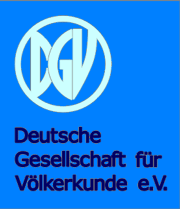my ‘cyberanthropology’ workshop at the GAA conference
 I just got notice that my proposal for a workshop ‘Cyberanthropology’ at the Conference of the German Anthropological Association (GAA aka DGV) – Halle / Saale, 4th – 7th October 2005 has been accepted, and that I am organizing it. Here is the first version of my description of the workshop:
I just got notice that my proposal for a workshop ‘Cyberanthropology’ at the Conference of the German Anthropological Association (GAA aka DGV) – Halle / Saale, 4th – 7th October 2005 has been accepted, and that I am organizing it. Here is the first version of my description of the workshop:
In the widest sense ‘cyberanthropology’ means the branch of sociocultural anthropology which aims to understand the culturally informed interrelationships between human beings and those technological artefacts which can be imagined and described as cybernetic systems. This interrelationships decidedly include the attempts to fuse technological artefacts with human and other biological organisms, with human society, and with the socioecologically shaped environment. In this attempts all the mentioned elements are envisioned as cybernetic systems. This outlines the contours of cyberanthropology’s broadest scope. But in the wake of recent discourses growing around metaphors like ‘globalisation’ and ‘information age/society’ especially Information and Communication Technologies (ICTs) move into cyberanthropology’s focus. The complex ‘human beings and ICTs’ unfolds its relevance for sociocultural anthropology inside the following three main sectors:
1. ICTs as tools for sociocultural anthropologists both in teaching and research. The spectrum reaches from using a personal computer as a typewriter, using and/or generating online-databases and -catalogues, communicating with colleagues and peers via internet-services, to keeping in touch with informants online, and the theory-based generation of new forms of representationa for anthropological knowledge. The latter should especially profit by ‘writing culture’ and ‘visual anthropology’.
2. ICTs in the field. The sociocultural anthropological observation, analysis and interpretation of the consequences of the introduction of ICTs into specific societies and/or groups. (Again I emphasize the fact that this comprises the whole world, and not “just those” in the traditional field of the discipline, but does not exclude “them” as well.) Concepts like ‘cultural appropriation of technology’ and ‘ethnography of work’ seem to be indispensable for this task.
3. ‘Cyberspace’ as field. The sociocultural anthropological observation, analysis and interpretation of the sociocultural phenomena springing up and taking place in the interactive ‘space’ (‘cyberspace’) generated by ICTs and computer-mediated communication (CMC). This comprises national and transnational online-groups, but also movements like ‘Open Source’ and the according societal, economical, and juridical issues and problems.
To which degree the three sectors become mutually influential or even inseperable, depends on the specific research-projects, the involved methods and the specific desideratum of understanding. But obviously the sectors 2. and 3. are prone to contain ‘conflicts’ in the sense of the conference’s central issue.
Sociocultural anthropology’s unique potentials of contributing to the above mentioned understanding gradually get unveiled. This potentials already have been recognized by neighbouring disciplines. One symptom of this process is the adoption, or even appropriation, of ‘ethnography’, a generic method of sociocultural anthropology, by sociology, media studies, and other academic disciplines. The engagement by sociocultural anthropology in the last decade was somewhat weaker, but the trend is pointing stoutly upwards. Therefore it is time to join the cyberanthropological efforts of anthropologists in Germany, too.
A programmatic presentation by Alexander Knorr will serve as a starting point for the workshop and the discussion. The following contributions not only will present the diverse fields, approaches, projects, and results, but will be integral parts of a joint debate. That way the workshop not only provides mutual information, but will be a first step towards a generic subdiscipline ‘cyberanthropology’.
That is not yet the official call-for-papers; therefore I first have to talk to the organisators. Stay tuned.

